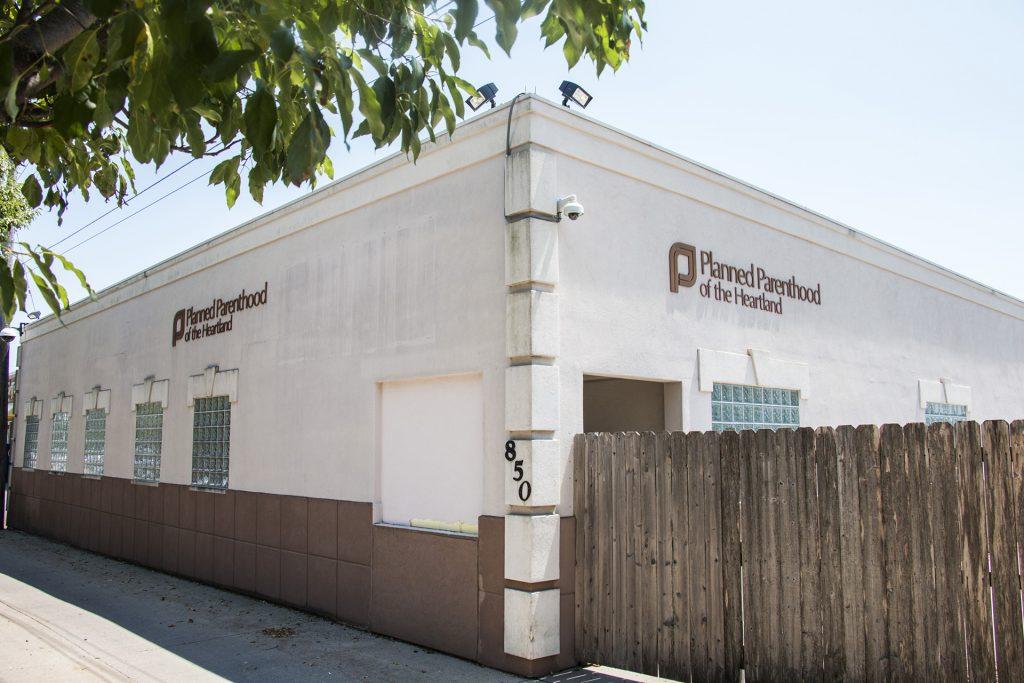Planned Parenthood of the Heartland, Iowa’s largest abortion provider among other health services, had asked a court for an injunction to halt the waiting period on abortions that passed the Iowa Legislature last year. When a district court denied that injunction, the group brought the case to the state Supreme Court.
And the high court backed Planned Parenthood.
“We are elated the court blocked Gov. [Kim] Reynolds’ egregious anti-woman agenda of making safe, legal abortions harder to access,” Suzanna de Baca, the CEO of Planned Parenthood of the Heartland, said in a statement. “No matter what she or her allies in the Legislature throw at us, Planned Parenthood will continue to stand up for Iowa women.”
The court applied strict scrutiny to Division 1 of Senate File 471, meaning that the act had to be narrowly tailored to serve a compelling state interest if it were to infringe on a woman’s fundamental right to an abortion, established more than 40 years ago in Roe v. Wade.
Division 2 of the Senate File 471, which prohibits abortions after 20 weeks of pregnancy, remains uncontested.
The act in question required that at least 72 hours before an abortion, a woman obtain certification that she underwent an ultrasound of the unborn child, displaying its approximate age, and was provided the options to view that ultrasound, hear a description of the ultrasound, and hear the fetus’s heartbeat.
In addition, the woman would have had to certify that she received materials from the Department of Public Health concerning the risks of abortion and alternative options.
Planned Parenthood provided substantial evidence, though, that not only does standard obstetrics and gynecology practice save ultrasounds for the 20th week of term (at which point the abortion would be illegal anyway), but the information drafted by the Public Health Department was inaccurate.
Among the inaccurate items, Planned Parenthood contended, the public-health information said abortions typically take three to six times longer than they do and the procedure involves “scraping the walls of the womb,” which is not consistent with procedural techniques.
Beyond proving that the act created an “undue burden” on women seeking abortions, the Iowa Supreme Court went a step further by applying strict scrutiny to the case and carefully considering not only how the government was creating barriers to abortions, but why, and if it would work.
The court found the state interest to promote potential life and help people make informed choices compelling, but Chief Justice Mark Cady cited numerous studies that said a waiting period has no substantial effect on a woman’s decision to have an abortion.
“In carefully considering the case, we conclude the statute enacted by our Legislature, while intended as a reasonable regulation, violates both the due-process and equal-protection clauses of the Iowa Constitution because its restrictions on women are not narrowly tailored to serve a compelling interest of the state,” Cady wrote in his opinion.
“Autonomy and dominion over one’s body go to the very heart of what it means to be free. At stake in this case is the right to shape, for oneself, without unwarranted governmental intrusion, one’s own identity, destiny, and place in the world. Nothing could be more fundamental to the notion of liberty. We therefore hold, under the Iowa Constitution, that implicit in the concept of ordered liberty is the ability to decide whether to continue or terminate a pregnancy.”
Iowa City has been a hub for the pro-choice campaign, home to one of the state’s two Planned Parenthoods that perform surgical abortions. It also has the only obstetrics and gynecology residency program in the state.
The OB-GYN program is still anxiously awaiting a state Supreme Court decision on the fetal-heartbeat law, which would make abortions illegal as early as six weeks into a pregnancy and effectively end the UI’s OB-GYN residency program by making it impossible to meet the requirements of the Accreditation Council for Graduate Medical Education.
Tom Moore, a spokesman for UI Health Care, told The Daily Iowan in an email that “at this point in time, there is a court injunction that has prevented the implementation of the fetal-heartbeat law until the Iowa Supreme Court rules on the matter.”
At the College of Law, Professor Todd Pettys believes the recent ruling foreshadows another pro-choice victory when the fetal-heartbeat law has its day in court.







